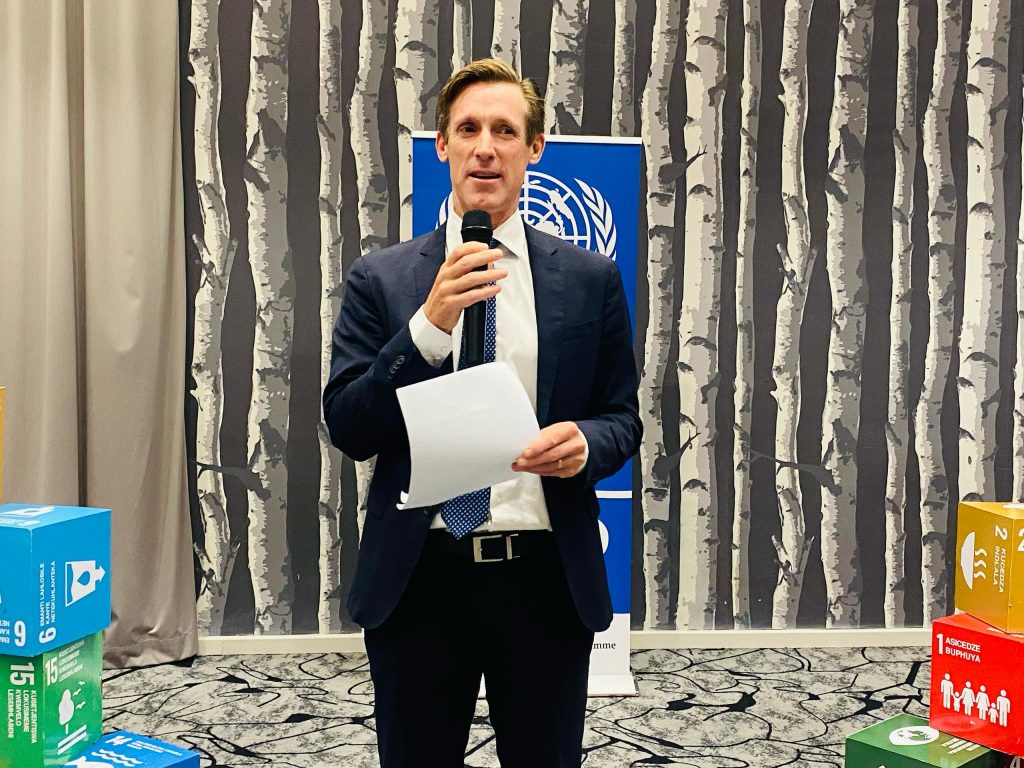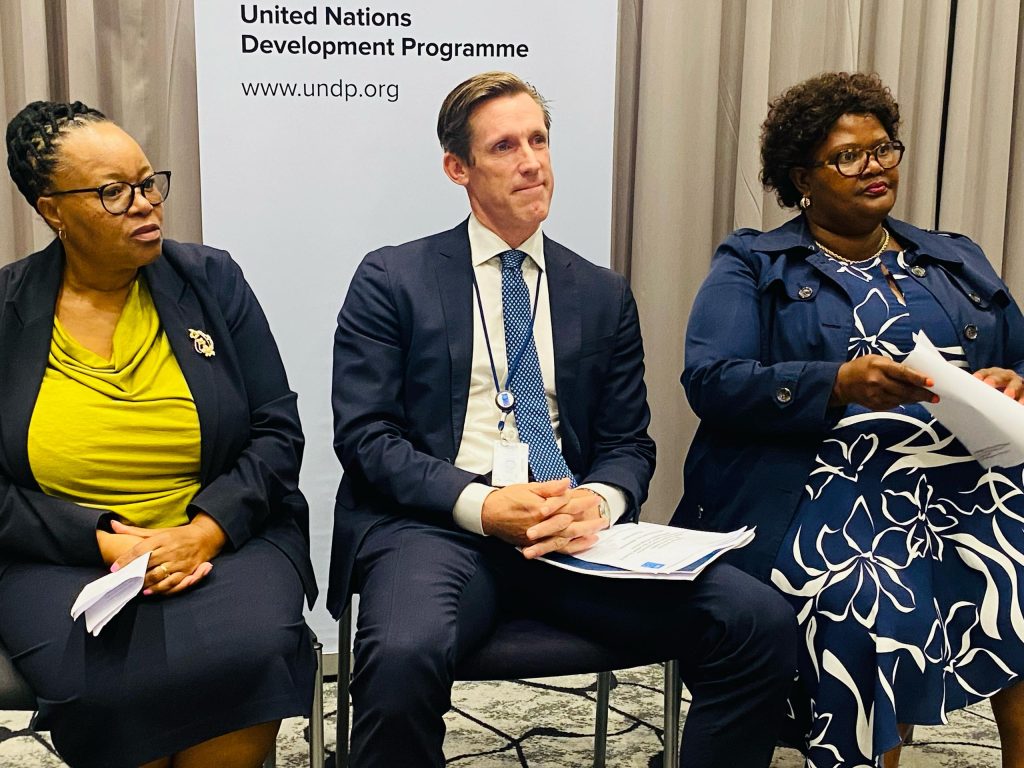
By Lindani Maseko
The United Nations Development Programme Eswatini (UNDP) has launched the first cohort of the Eswatini UNDP Student Ambassadors programme.
The 20 students are from the University of Eswatini (UNESWA) and their role will be to promote the Sustainable Development Goals (SDGs) and UNDP’s work nationally and globally.
The launch took place at the Hilton Garden Inn Hotel in Mbabane, where it was met with excitement from the students. The global target of student ambassadors for this cohort is 400.
“In Eswatini, we started with 20 students, all from UNESWA. We hope to grow and hopefully expand to other tertiary institutions,” Henrik Franklin, UNDP Resident Representative, said.
During the launch, Franklin clarified that although this programme was neither an internship nor a job opportunity, it would enhance the students’ abilities to understand the development space and hopefully come across career opportunities in the sector.
He mentioned that over 70 applications had been received, and the quality of the applicants was impressive, with most already involved in development work as entrepreneurs, peer educators, community outreach workers, or through other initiatives.
Franklin also stated that the students would engage in various communication initiatives at the university, within communities, and on social media to connect with their peers and wider audiences to discuss development issues and support Eswatini in accelerating its progress towards achieving its SDG targets by the year 2030.
The Student Ambassadors Programme is a global initiative of UNDP that aims to increase awareness about UNDP’s mandate and develop the next generation of leaders passionate about creating sustainable change.
The initiative is part of a global UNDP initiative led by the Office of Human Resources under the Bureau for Management Services. It aligns with the People for 2030 Strategy, a people-centred approach that focuses on investing in people, building a “One UNDP” culture, and developing future-oriented HR and talent management systems.

“I urge you to take advantage of these webinars to learn as much as possible. During the onboarding process, you also met your peers from other countries with whom you shared your experiences. Another advantage of this initiative is that it fosters collaboration and enhances your understanding of career opportunities in UNDP and the wider United Nations,” Franklin said.
Furthermore, UNDP Eswatini has a comprehensive youth initiative known as the Eswatini Youth Empowerment Programme (EYEP), which focuses on graduate placements and artisanal skills training for young people who are out of school.
As part of EYEP, a partnership with the Food and Agriculture Organisation (FAO) has been established to support 130 youths across 12 farming groups nationwide with shade nets. This support aims to protect their vegetables for enhanced production and consistent market access.
